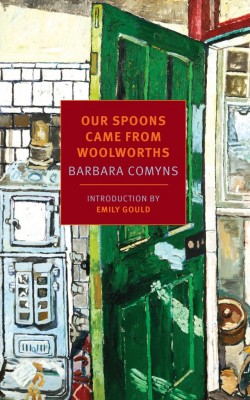
The first page of this novel tells us two things: that it’s a sad story, and that it gets better. From there, we launch directly in to the first person narrator’s history: marriage between two young artists (Charles and Julia) during the Depression, collecting furniture on a poverty-line budget, fending off intrusive and condescending in-laws. Not until things start to sour between them do we see what the introductory paragraphs didn’t foreshadow: this is a great feminist text.
There are two primary narratives of an unhappy marriage written by women in the 20th century: the rich but emotionally neglected wife forced to perform happiness in order to retain her social position, and the victim of outright abuse. In Spoons we have a third, subtler story, in a husband so artistically self-involved he refuses to notice that he might have some responsibility for that fact that his wife, who has lost her job due to pregnancy, literally cannot afford to feed herself.
It’s pretty rare to get a novel written in the first half of the twentieth century in which both halves of a couple take it for granted that the wife will be the bread-winner – in fact, I can’t think of another example. The poverty in Spoons feels like an active participant in the marriage: it’s not just the background against which events take place, it’s real and present and affects the way the characters relate to each other to such an extent that it’s clear the relationship would have been entirely different if Charles had managed to sell a few paintings. It may not have been happy, but it could have been functional. It’s a powerful story and not one that is told very often. The prose style is also an interesting choice. Julia’s narrative voice is naive, simple, and optimistic, which makes it all the more horrifying when, with no warning, the story takes the occasional turn into darkness: Julia’s first experience of childbirth in a public hospital, for example, which is objectively traumatic but is narrated in the same matter-of-fact tone.
Like so many earlier 20th century novels written by women about female experiences, this one has been forgotten somehow, though it deserved to be an instant classic. Recommended.